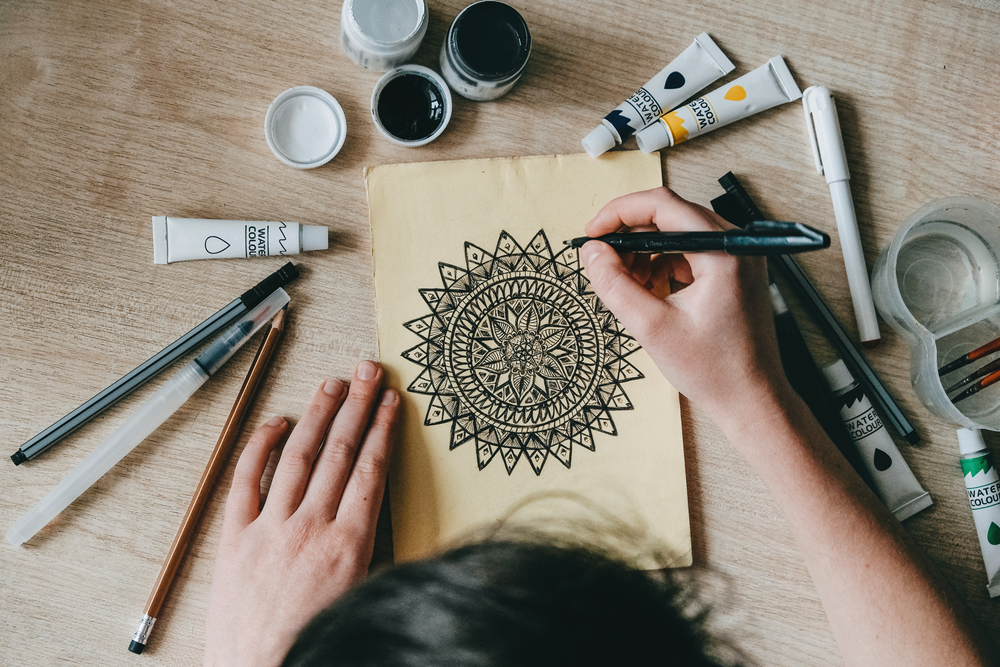How Hobbies Reduce Stress
In today's fast-paced and often overwhelming world, stress has become an almost unavoidable part of daily life. Whether it stems from work pressures, family responsibilities, or the constant barrage of information from digital devices, chronic stress can take a serious toll on both mental and physical health. Fortunately, one of the most effective and enjoyable ways to combat stress lies in something as simple as engaging in hobbies. This article explores how hobbies reduce stress, why they are essential for well-being, and how you can incorporate them into your life in 2025 and beyond.

The Science Behind Stress Reduction Through Hobbies
Stress triggers a biological response in the body often referred to as the “fight or flight” reaction. This involves the release of stress hormones such as cortisol and adrenaline, which prepare the body to deal with immediate threats. While this response is useful in short bursts, prolonged exposure to high stress hormone levels can lead to anxiety, depression, cardiovascular problems, and a weakened immune system.
Hobbies offer a natural antidote to this chronic stress cycle by activating the parasympathetic nervous system—the part of the nervous system responsible for relaxation and recovery. When engaging in enjoyable activities, the brain releases dopamine and endorphins, chemicals associated with pleasure and well-being. These neurochemicals help reduce cortisol levels, thereby lowering overall stress.
Research in 2025 continues to reinforce the benefits of hobbies on mental health. A study published early this year by the National Institute of Mental Wellness found that individuals who dedicated at least 30 minutes a day to a hobby experienced a 40% reduction in perceived stress levels compared to those who did not engage in leisure activities. This demonstrates that the simple act of making time for hobbies can significantly improve emotional resilience.
Types of Hobbies That Help Alleviate Stress
Not all hobbies are created equal when it comes to stress reduction, but many provide unique benefits depending on their nature. Here are some popular categories of hobbies proven to reduce stress effectively:
Creative Hobbies
Activities such as painting, drawing, writing, or playing a musical instrument allow individuals to express emotions in a constructive way. Creative hobbies engage the brain’s right hemisphere, which is associated with imagination and emotional processing. This creative outlet can help individuals process difficult feelings and distract from stressful thoughts.
Physical Hobbies
Exercise is one of the most well-known stress relievers. Hobbies like running, cycling, swimming, yoga, or even gardening not only provide physical activity but also boost endorphin production. Regular physical hobbies improve sleep, reduce anxiety, and increase overall mood stability.
Mindfulness and Relaxation Hobbies
Meditation, knitting, puzzles, or even bird watching can induce a state of mindfulness, helping individuals focus on the present moment rather than worrying about past or future stressors. These hobbies promote relaxation and can lower heart rate and blood pressure.
Social Hobbies
Engaging in group activities such as team sports, book clubs, or dance classes fosters social connections. Building a support network is crucial for managing stress, as positive social interactions release oxytocin—a hormone that counters the effects of stress.
Incorporating Hobbies Into Your Busy Life in 2025
Despite knowing the benefits of hobbies, many people struggle to find time for them. The demands of modern life, especially with the increasing blur between work and home due to remote working trends in 2025, can make it challenging to prioritize leisure. Here are some practical tips to help integrate hobbies into your routine:
Schedule It Like an Appointment
Treat your hobby time as seriously as a work meeting or doctor’s appointment. Block out specific time slots during your day or week for your chosen activities. Even 15–30 minutes can make a difference.
Start Small and Build Up
If you haven’t had a hobby for a while or are trying a new one, start with small, manageable goals. For example, start with 10 minutes of sketching or 5 minutes of meditation and gradually increase as it feels comfortable.
Use Technology Wisely
While excessive screen time can contribute to stress, technology can also help you find hobbies. Online tutorials, virtual clubs, and apps for meditation or music lessons make it easier to engage in hobbies from home or on the go.
Combine Hobbies with Routine Tasks
If time is limited, combine hobbies with daily activities. Listen to an audiobook while cooking, do stretches during TV commercials, or garden while spending time outdoors with family.
Make It Social
Invite friends or family members to join your hobby sessions. Shared hobbies can increase motivation and add a social component that enhances stress relief.
The Long-Term Benefits of Maintaining Hobbies
Beyond immediate stress reduction, hobbies contribute to long-term mental and physical health in several ways:
- Improved Cognitive Function: Engaging in challenging hobbies like puzzles or learning new skills enhances brain plasticity and can help prevent cognitive decline.
- Emotional Balance: Regular involvement in enjoyable activities fosters a positive outlook and emotional stability.
- Better Sleep: Stress reduction through hobbies often leads to improved sleep quality, which is essential for overall health.
- Increased Self-Esteem: Achieving goals or mastering a new hobby boosts confidence and provides a sense of accomplishment.
- Resilience: People who regularly engage in hobbies tend to cope better with life’s ups and downs, making them more resilient to future stressors.
Conclusion
In 2025, as the world continues to evolve and present new challenges, managing stress remains a top priority for maintaining health and happiness. Hobbies offer a simple, effective, and enjoyable way to reduce stress by promoting relaxation, enhancing mood, and fostering social connections. Whether through creative expression, physical activity, mindfulness, or social engagement, dedicating time to hobbies can transform the way we handle stress. By prioritizing leisure activities and making them a regular part of life, individuals can improve their overall well-being and face the future with greater calm and confidence. So, why not pick up that paintbrush, put on your running shoes, or start that book club today? Your mind and body will thank you.
Disclaimer: All content, including text, graphics, images and information, contained on or available through this web site is for general information purposes only. The information and materials contained in these pages and the terms, conditions and descriptions that appear, are subject to change without notice.





